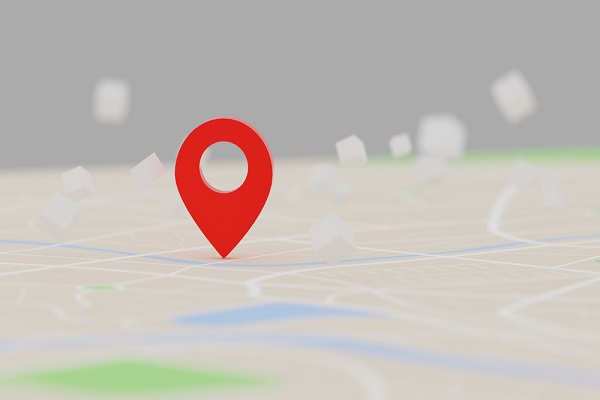4 Ways to Dominate Regional Markets with Local SEO

By: Sam Bowman
If you run a business, you’re probably already familiar with the importance of having an online presence. Most consumers today, especially younger generations, prioritize digital interactions and communication, which means they use the internet to access most things they need.
However, as an independent insurance agent, you can’t stop at having an online presence—you must ensure that your online efforts are localized. Insurance is a localized service. When someone needs insurance, they don’t just choose any insurance company they come across; they specifically look for one in their local area.
While you might already have an online presence with a search engine optimization (SEO) strategy, you may be less familiar with local SEO.
Local SEO is crucial for insurance businesses, especially smaller, independently owned ones. If you want to improve your local listings and ensure consumers in your area choose your business over other local insurance agents or companies, then you must start prioritizing local SEO.
What Is Local SEO?
SEO is a digital marketing strategy that helps boost your search rankings on sites like Google. Google utilizes an algorithm, or Google ranking factors, that helps users find sites that are most relevant to what they are searching for. A variety of considerations go into these rankings, but all of them have to do with providing the best information to users who are searching for specific keywords.
How does SEO help with this process? If someone searches “smartwatches,” for example, all the websites that sell or talk about smartwatches will appear in the search results. But if those businesses want their website to be closer to the top of the list of results—meaning it’s more likely that the user will visit their site over others—then they need to have an SEO strategy that helps Google rank their site higher in search results. This is often done by creating optimized content by using certain keywords and backlinking.
However, SEO strategies are not always localized, meaning they might help your website rank higher in general search results but not necessarily in local search results. For example, if someone is searching for “homeowners insurance in Chicago,” and you are a Chicago-based agent, your website would appear higher in search results—but only if your site is locally optimized. If it’s not, other insurance businesses using local SEO in your area will appear before yours.
Tips to Improve Visibility in Your Target Region
If you are already familiar with SEO, the good thing is that local SEO is not much different. It is doing much of the same work but with a focus on helping Google know specifically where your business and services are located and offered. Here are four tips:
1) Optimize for Google My Business. Google My Business is a free service that enables businesses to list and manage their presence online across Google, particularly the map section of Google search listings. However, if information about your business is not accurate and consistent across all online platforms you use, Google may not accurately show your business to people searching for insurance locally.
To start, you must visit the Google My Business website and follow the instructions on how to claim a listing for your business. From there, you need to ensure that local information about your business is readily available and accurate on your website and any other platforms you use.
Most importantly, your business name, address and phone number, collectively called NAP, need to be accurate and consistent across the internet. Your NAP should be the same on your Google My Business as in any other online directory listing your business. And for that matter, the more online directories that you can get your business and website listed on the better, as this will also help boost your local search rankings.
2) Focus on localized keywords. SEO keyword strategies often focus on national or even global keywords, meaning they are keywords that help people find your website no matter where they are located. But if your business is located in Idaho, you don’t want to waste your efforts targeting your content to someone looking for insurance in Ohio.
To ensure the right people in the right area are able to find your business, you need to use more localized keywords in your content. So instead of just having pages on your website that talk about the services you offer, like homeowners insurance, you need pages that use more specific local keywords for the areas you serve, like “homeowners insurance in Idaho” or “Boise homeowners insurance agent.”
The more local and specific keywords you use, the higher Google will place your website in search rankings when people search for the services you offer in your local area.
3) Build local links. If you are familiar with SEO, you’ve likely already heard of backlinking strategies. Building local links is the same, except you want to focus on getting backlinks specifically on other local business sites. Having other websites link to your site generally helps build authority, but getting backlinks on local sites is even better.
For example, if a blog specifically writes content about topics in your local area, having them link to your website in their content will improve your local rankings. You can even reach out to various other local businesses and request a link, such as those you might be willing to partner with.
4) Encourage online reviews. The more customer reviews you have on your Google My Business listing, the more it signals to Google that you are a reputable and trusted business. In other words, it helps improve your authority as a local business, which means Google will list you higher in search results.
Don’t just wait around and expect customers to leave reviews. After a client works with you, be sure to email them to thank them for choosing your business and politely ask if they can leave a review. The more you get in the habit of doing this, the more consistently you will get reviews.
Sam Bowman writes about careers, tech, insurance, and how they merge. He enjoys getting to utilize the internet for a community without actually having to leave his house. In his spare time, he likes running, reading, and combining the two in a run to his local bookstore.










